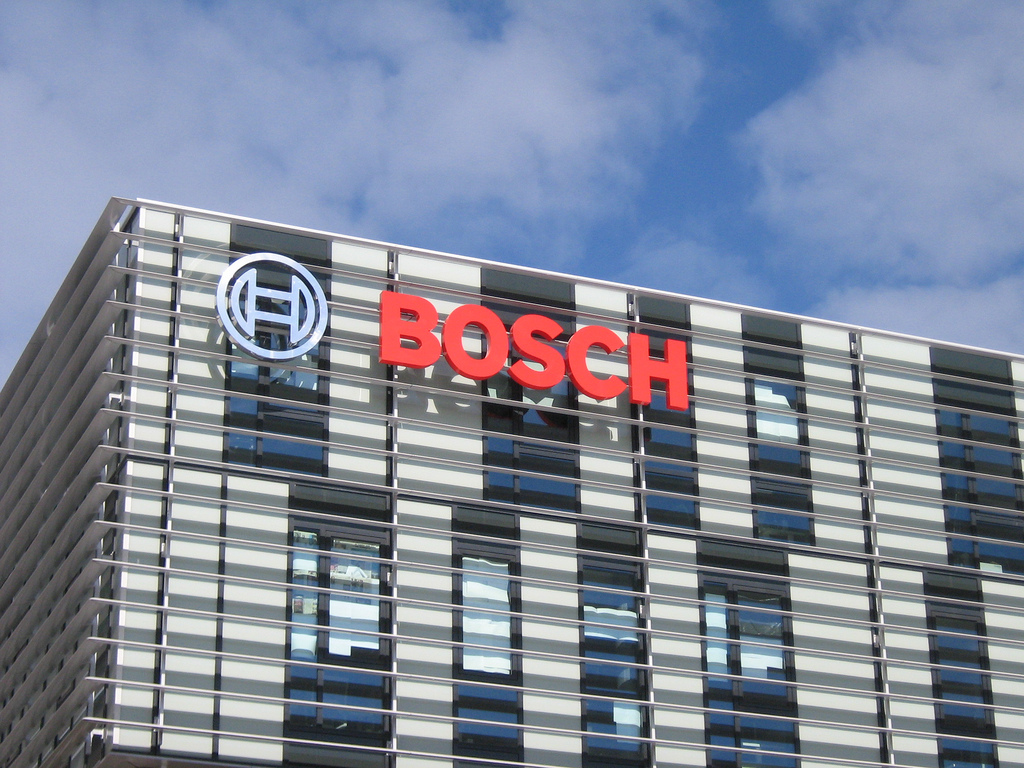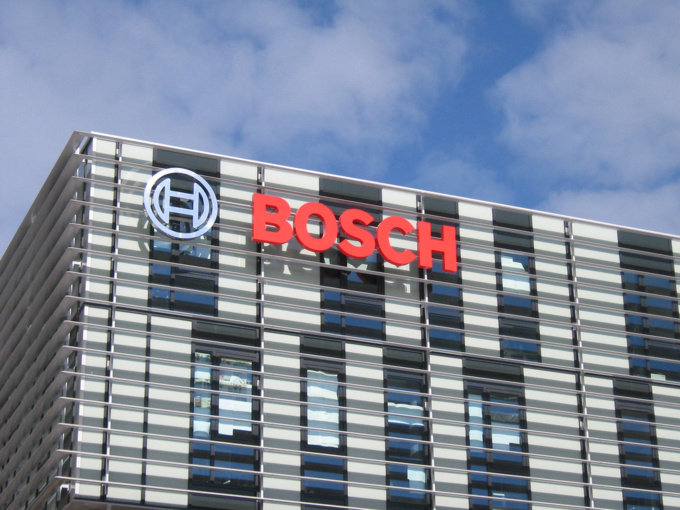Chairman of the Board Robert Bosch GmbH Volkmar Denner says: "The new semiconductor plant is Bosch's largest investment in more than 130 years of the company's history". Dirk Hoheisel, Member of the Board Robert Bosch GmbH comments: "As one of the industrial centers, the Federal State of Saxony offers excellent conditions for building up our expertise in the field of semiconductor production".
Continuing its course of major investments in Germany, the Bosch Group intends to build a semiconductor plant in Dresden, according to a press release. To meet the demand caused by the development of the Internet of things (IoT) and Internet technologies in the automotive industry, the new plant will produce chips based on 12-inch substrates. The construction of a high-tech plant will be completed by the end of 2019. Production will begin, most likely, at the end of 2021. The volume of investment in the company is about one billion euros. "The new semiconductor factory is Bosch's largest investment in more than 130 years of the company's history", says Volkmar Denner. The plant will create about 700 new jobs.
"Semiconductor devices are the basis of almost any electronic systems. As the Internet develops things and automation grows, semiconductor technologies are used all in more diverse areas. Expanding production facilities for the production of semiconductor devices, we create a solid foundation for the future and increase our competitiveness", Denner said.
According to a study by PricewaterhouseCoopers, the global semiconductor market will be showing an annual growth rate of over 5% until 2019, while growth in the mobility and Internet solutions segment of things will be particularly strong.
Investing in Germany as a high-tech production site
Brigitte Zypries, Federal Minister of Economy and Energy of Germany, welcomed Bosch's investment in Germany as a country with high-tech production. "We are pleased that the Bosch Group has decided to open a new venture in Saxony. Increasing expertise in the field of semiconductor production in Germany and Europe as a whole is an investment in the key technologies of the future, and this is a very important step for preserving and enhancing the competitiveness of Germany itself as an industrial center".
If approved by the European Commission, the Ministry of Economy and Energy of Germany (BMWi) intends to support the Bosch Group in the construction and start-up a new semiconductor factory in Dresden. "As a center of industrial production, the Federal State of Saxony creates excellent conditions for building up our expertise in the field of semiconductor devices", says Dirk Hoheisel. The Dresden cluster of the microelectronic industry, called "Silicon Saxony", has no equal in Europe. It includes automakers and service providers, as well as universities that contribute to increasing technological expertise. In addition, the Digital Hub Initiative from the German Ministry of Economy and Energy is designed to create an ecosystem for the development of the Internet of things in Dresden. Bosch intends to closely cooperate with local companies and thereby strengthen not only the status of Germany itself, but also the position of the whole of Europe as a center for industrial production.
"This is another good solution for the largest European cluster in the field of microelectronics here in Saxony. I would like to thank Bosch for the company's confidence in our region, for creating new jobs and enhancing our innovative capabilities. New products for the Internet of things and networked production are among the most important areas in today's microelectronics industry and throughout the European industry as a whole", says Stanislaw Tillich, the minister-president of Saxony.
source: innovatorsmag.com
Continuing its course of major investments in Germany, the Bosch Group intends to build a semiconductor plant in Dresden, according to a press release. To meet the demand caused by the development of the Internet of things (IoT) and Internet technologies in the automotive industry, the new plant will produce chips based on 12-inch substrates. The construction of a high-tech plant will be completed by the end of 2019. Production will begin, most likely, at the end of 2021. The volume of investment in the company is about one billion euros. "The new semiconductor factory is Bosch's largest investment in more than 130 years of the company's history", says Volkmar Denner. The plant will create about 700 new jobs.
"Semiconductor devices are the basis of almost any electronic systems. As the Internet develops things and automation grows, semiconductor technologies are used all in more diverse areas. Expanding production facilities for the production of semiconductor devices, we create a solid foundation for the future and increase our competitiveness", Denner said.
According to a study by PricewaterhouseCoopers, the global semiconductor market will be showing an annual growth rate of over 5% until 2019, while growth in the mobility and Internet solutions segment of things will be particularly strong.
Investing in Germany as a high-tech production site
Brigitte Zypries, Federal Minister of Economy and Energy of Germany, welcomed Bosch's investment in Germany as a country with high-tech production. "We are pleased that the Bosch Group has decided to open a new venture in Saxony. Increasing expertise in the field of semiconductor production in Germany and Europe as a whole is an investment in the key technologies of the future, and this is a very important step for preserving and enhancing the competitiveness of Germany itself as an industrial center".
If approved by the European Commission, the Ministry of Economy and Energy of Germany (BMWi) intends to support the Bosch Group in the construction and start-up a new semiconductor factory in Dresden. "As a center of industrial production, the Federal State of Saxony creates excellent conditions for building up our expertise in the field of semiconductor devices", says Dirk Hoheisel. The Dresden cluster of the microelectronic industry, called "Silicon Saxony", has no equal in Europe. It includes automakers and service providers, as well as universities that contribute to increasing technological expertise. In addition, the Digital Hub Initiative from the German Ministry of Economy and Energy is designed to create an ecosystem for the development of the Internet of things in Dresden. Bosch intends to closely cooperate with local companies and thereby strengthen not only the status of Germany itself, but also the position of the whole of Europe as a center for industrial production.
"This is another good solution for the largest European cluster in the field of microelectronics here in Saxony. I would like to thank Bosch for the company's confidence in our region, for creating new jobs and enhancing our innovative capabilities. New products for the Internet of things and networked production are among the most important areas in today's microelectronics industry and throughout the European industry as a whole", says Stanislaw Tillich, the minister-president of Saxony.
source: innovatorsmag.com



















